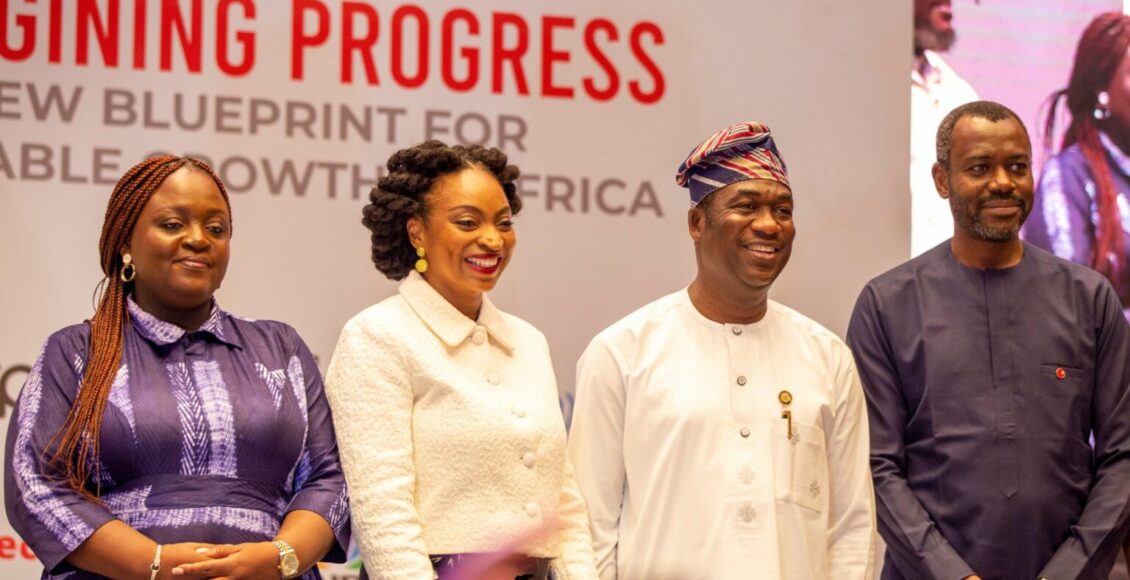Improved healthcare delivery, climate resilience, technological intervention, others drive conversation at ASIS 3.0

The third edition of the Africa Social Impact Summit (ASIS 3.0) co-convened by The Sterling One Foundation and the United Nations held at Eko Convention Center from July 25-26. The summit was themed: “Reimagining Progress: A New Blueprint for Sustainable Growth in Africa.”
Prominent stakeholders from both the public and private sectors converged at the the venue to deliberate and foster solutions to Africa’s most pressing challenges.
The Summit underscored the importance of cross-sector collaboration, bringing together private sector organizations, NGOs, and other key stakeholders to address the continent’s critical issues.
The event kicked off with a keynote address by United Nations Deputy Secretary-General Amina Mohammed on “Sustainable growth must include climate resilience, leveraging technology, and private sector innovations,” she stated, urging attendees to “recommit to the 2030 agenda with a focus on inclusivity, impact, and inspiration.”
CEO of Sterling One Foundation, Mrs. Olapeju Ibekwe, articulated the summit’s objectives, saying, “ASIS aims to forge and expand partnerships, attract greater impact investment, and advocate for supportive policies.”
An Investor Roundtable, organised by the Lagos State Government in collaboration with various organisations, opened the summit. Lagos State Executive Governor Babajide Sanwo-Olu’s presence underscored the government’s commitment to fostering a favorable environment for sustainable development.
The Deputy Governor of Lagos State Obafemi Hamzat who represented Gov Sanwo-Olu presented the “THEMES PLUS” initiative, which promotes development in crucial sectors. “ASIS 2024 must serve as a catalyst for collaboration and action,” Hamzat declared, highlighting the importance of public-private partnerships.
Representing Vice President Kashim Shettima, Jumoke Oduwole, called for a paradigm shift in economic thinking. “It is time for action; we must move beyond rhetoric and focus on solutions with tangible impact,” she asserted. “Africa can lead the way in a new model that balances prosperity, the environment, and equity.”
CEO of the Aliko Dangote Foundation, Zouera Yousouffou, candidly addressed the need for a shift from diagnosis to intervention. “Africa does not have the necessary resources or organizational framework to address health-related problems,” she said.
ABC Health CEO Mories Atoki pointed out the politicization of partnerships as a major barrier, while Dr. Tayo Aduloju, CEO of the Nigerian Economic Summit Group, stressed the importance of delivering tangible outcomes over empty promises.
Lagos State Commissioner of Health, Professor Akin Abayomi, highlighted the foundational importance of moral leadership and education, noting, “Leaders don’t just happen; they are made through education and training.”
The investment panel session titled “Scaling Catalytic Capital for Sustainable Economic Prosperity,” featured a lineup of experts including Uju Okafor of Afreximbank, Adekemi Ajayi of Acumen West Africa and Dr. Omawumi Kola-Lawal from the IFC.
A significant outcome of the summit was the commitment to developing a resource allocation framework aimed at addressing healthcare, climate resilience and other pressing challenges across the continent.

